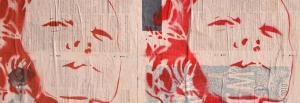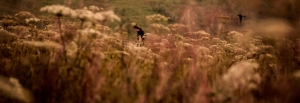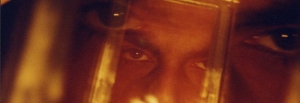We believe that artistic residence are the right way to house, plan and record the work process of any theatrical experimentation.
Every experimentation on theatrical languages, to fully works and lives, needs broaden times and spaces compared to those offered by the theatrical establishment. Often the traditional hosting model avoid the creation of a fertile bundle between the opera and the hosting territories. We need to find new operational models, new ways to house the theatrical experimentation. Here it is the artistic residencies model, which allows an artist, or a group, to reside in a territory to fully disclose the artistic work and to support the exchange with the hosting community.
PAST EDITIONS
SEVEN RESIDENCIES FOR THEATRICAL RESEARCH 2016 / 2017
The program Vicenza sept - dec 2015 / AB23.
In the 2015 our project was be@home
In the 2014 be@lemming
BERLIN
WELCOME PROJECT
Welcome Project is born in 2014 in Berlin by an idea of Chiara Rossini. Its name is due to her personal experience as emigrated, but also to a particular idea of theatre: Theatre is another world, governed by others rules, a space where not ordinary things can happen. Nevertheless the idea of the Project was also inspired by a movie: Welcome is a film of Philip
Loiret. It tells the story of a clandestine that tries to overpass the English Channel by swimming because he wants to join his lover.
Welcome project will join together a group of actors and dancers who coming from all over Europe and lives in Berlin. The first productive project will be Intime Fremde. The performance, entirely produced by Teatro del Lemming, will debut in 2015.
see the project website
OUR ACTIVITIES
THE 5 SENSES OF THE ACTOR - theatre class
To be a guide, the actor has to improve his skills of LISTENING / ADAPTATION 7 DIALOGUE. The work of Lemming's actors develops these three principle simultaneously in four directions: towards himself, towards his partners, in the space, towards the spectator. The main instrument of this research is the body. The sense/the senses of the body.
In this type of theatrical work, the body isn't a prothesis of the mind, but is fullness, it is something naked that permits the nakedness of the aim and the truth of the encounter with other aims and other bodies.
For us the five senses of the actor are an invocation to the fullness of life and a way to reach the beyond of theatre and the creative skills of the actor.
The class is open to a maximum of 23 participants.
Starting on 25th February: Wednesdays 6 - 9pm at TATWERK Berlin, Gewerbehof Hasenheide 9 - 10967 Berlin
REGISTRATIONS: please send an e-mail to This email address is being protected from spambots. You need JavaScript enabled to view it.
THE 5 SENSES OF THE ACTOR WORKSHOP-THE IMMERSION
An immersion in the 5 senses method from 16th to 18th April at TATWERK Berlin space. The workshop will be too a space of reflection and a research about the next productive project INTIME FREMDE.
RAGISTRATIONS AND INFO: please send an e-mail to This email address is being protected from spambots. You need JavaScript enabled to view it.
SHOWS
ODISSEO Travel in theatre
from 24th to 26th April, Theater Forum Kreuzber.
THE FIVE SENSES PLUS ONE: THE SOUL'S DOOR
The methodology studied and applied by Lemming's Theatre considers the body, in the fullness of its five senses, became the door of soul and dream. The body consequently is the main tool of the actor.
If soul, the Aristotelian psyche, could not exist without a living body, the senses are the gateway to an imaginal and archetype universe. These universe is the essential tool for the actor to achieve the creation and the identification. Trough the senses it is possible to join a paramount source of inspiration, named the ancestral soul of the world by James Hillman.
THE SPECTATOR'S THEATER
The spectator's theater is an unedited perspective in contemporary theater.
It is characterized by:
1. an intimate and personal experience for the audience;
2. a relation between the personal subjectivity and the myth universal models;
3. a deep emotional experience dedicated to the singular spectator or small groups of audience: an audience direct participation in the event is, for these reason, implied;
4. a space to habit and to lose in;
5. a relation constructed trough the body of the actor and the spectator both: the experience is although strongly sensitive – not only sight and hearing but also sense of smell taste and touch. All the five senses together reacting to create a dramaturgy of senses.
6. an aesthetic and sensuous universe allowed to be explored by the audience.
The Theatre of the Spectator is a theatre that:
1. is a deeply emotional experience for the audience;
2. is not a simple representation but became the personal experience of an event: I don't attend something but I live it;
3. is not dedicated for a shapeless crowd (the audience) but it is dedicate to every singular participant;
4. is able to redefine the role actor/spectator through their direct relation that became the experience focus;
5. considers the audience no more a nineteenth-century voyeuristic spectator, given that, nowadays, the paradigm of our citizen condition is similar to inert powerless spectators;
6. challenges the passivity of the audience that became the actor of the event: he often is the leading actor;
7. makes the theatrical event a unique, personal and irreplicable experience for every singular participant;
8. builds small rituals because it relies on the ritual, sacred and cognitive sense that is fundamental in the theatrical experience also;
9. gets back to a native theatrical practice able to induce people to became citizens of the world;
10. defines the actor's work like a gift of love towards the spectator, whit all the challenge, the mutual bare and the structural risk that these involves;
11. is able to redefine the use of the theatrical space, the performance is no more forward, but it looms me, it is in me and I live in it like in a universe in which I fall;
12. is able to redefine the time of the experience: it starts when the spectator book his participation and it broaden before the end trough the inevitable processing.
Working process
Whatever is opposed is reconciled and from different things are born the most beautiful harmony, and all things are generated by a contrasting way.
Eraclito, Dell’origine
Ricerca teatrale può dirsi possibile solo a partire dalla creazione di un processo, che a sua volta può darsi solo a partire dalla disponibilità di adeguati tempi di lavoro.
Per ricerca teatrale si intende quel teatro che persegue:
- l'autonomia del linguaggio scenico dal testo teatrale;
- la ridefinizione dello spazio scenico;
- la riformulazione della presenza e dello sguardo dello spettatore;
- una pedagogia originale sull'attore;
- un legame che unisce gli attori al progetto del gruppo;
- un processo e tempi di lavoro che consentano una reale ricerca.





